By the time headlines started calling him the “worst man in four states,” he had built a sprawling operation of cattle thieves and bandits stretching across Wyoming, Utah, Colorado and Idaho.

Cassidy’s rise began after the collapse of organized rustling in the early 1890s. With the territory still mostly wild and hard to police, he pulled together a loosely structured network of men — reportedly up to 500 strong — who stole cattle, robbed banks and trains, and managed to keep law enforcement constantly scrambling. The Wild Bunch, as they came to be known, moved quickly and quietly through rough country that worked in their favor. By 1898, their activity had grown serious enough that four state governors met to come up with a plan to stop them.
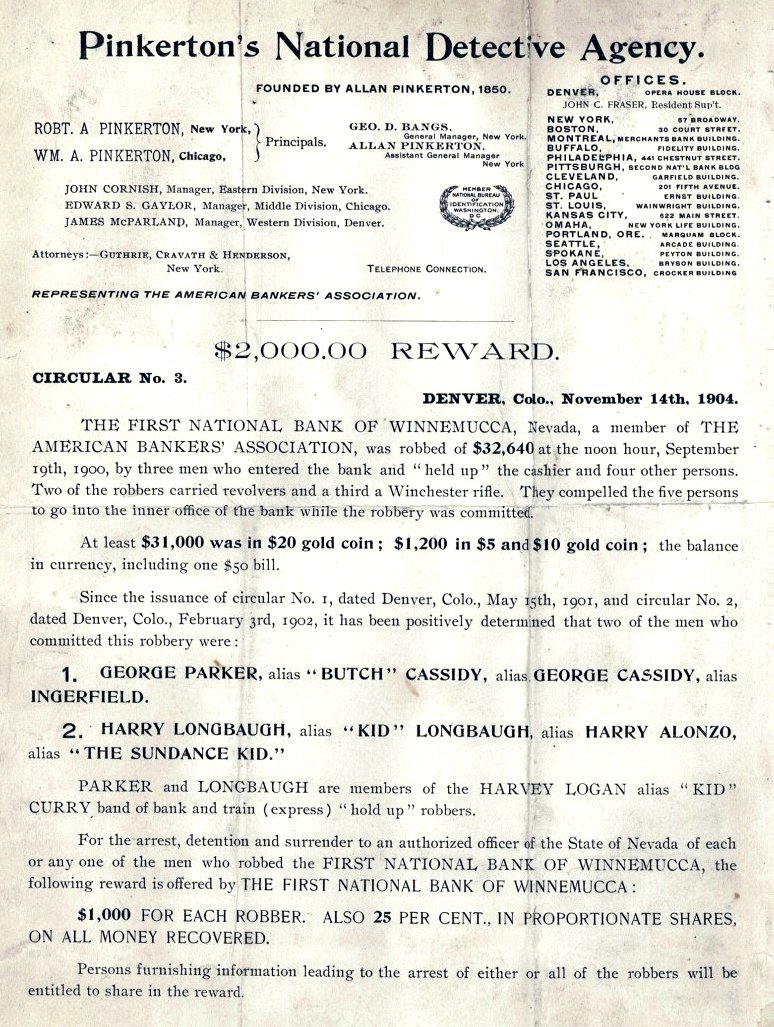
Trying to arrest Cassidy was rarely successful. He knew the terrain better than the men chasing him and had no trouble disappearing into hideouts like Robbers’ Roost. Stories from the time include lawmen being captured, disarmed and sent home on horseback with handwritten notes pinned to their shirts. Cassidy also had a reputation for calculated restraint — he wasn’t seen as bloodthirsty, per se, but was dangerous if provoked. His ability to avoid the fate of other outlaws gave him an almost untouchable reputation.
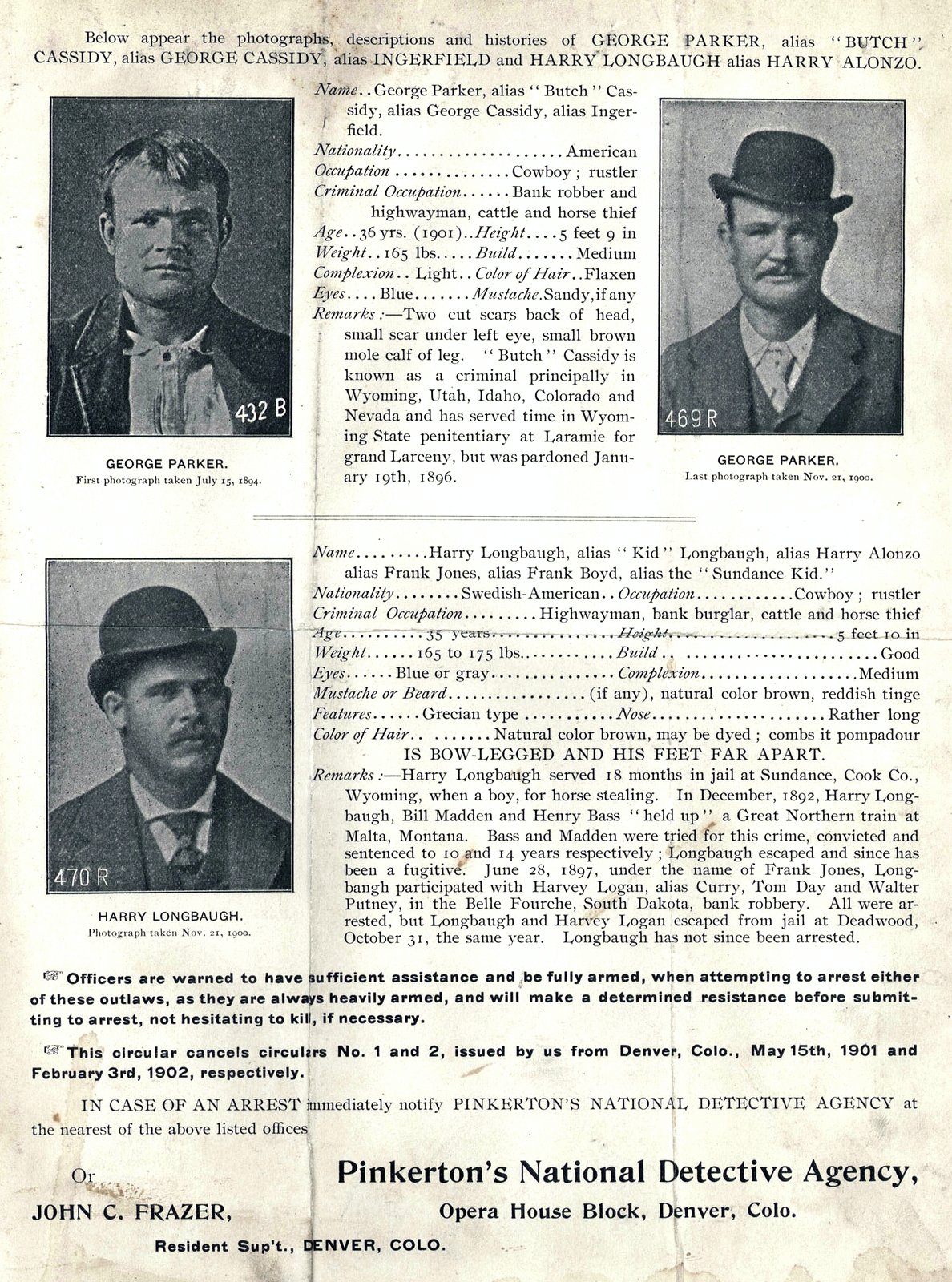
Some parts of the legend come from people who knew him personally. Cassidy’s sister Lula insisted years later that he never died in Bolivia, as the official story claims, but lived out his years quietly in the U.S. She described him as generous, resourceful and loyal to the people he trusted. Whether or not her version is true, it added another layer to a story already packed with contradictions and mystery.
Butch Cassidy operated at a time when the West was changing fast, and his story captured what felt like the last burst of open rebellion against growing law and order. He wasn’t the only outlaw, but his name endured in part because the law never really caught up with him — at least not in the way they hoped.
Below, we’ve pulled together a batch of vintage articles, historic reprints and photos. These offer a look at how Butch Cassidy was viewed in his time — through the eyes of reporters, lawmen and the people who claimed to know him best.
- Leerhsen, Charles (Author)
- English (Publication Language)
- 320 Pages - 07/20/2021 (Publication Date) - Simon & Schuster (Publisher)
Butch Cassidy & his 500 Freebooters: Rounding up outlaws (1898)
San Francisco Call (San Francisco, California) April 3, 1898
Active Campaign By the Governors of Four States Against “Butch” Cassidy and His 500 Freebooters.
They Number Five Hundred and Keep Four States In Terror — Some of Their Crimes Against Law-Abiding Citizens of the Southwest.
“Butch” Cassidy is a bad man. He is the worst man in four states. These states are, and when the four governors met in secret conclave recently it was for the purpose of deciding upon a plan of campaign against the most notorious outlaw the West has ever had to cope with.
The achievements of Jesse James and his followers pale into tawdry insignificance before those of “Butch” Cassidy [Robert Leroy Parker] and his 500.
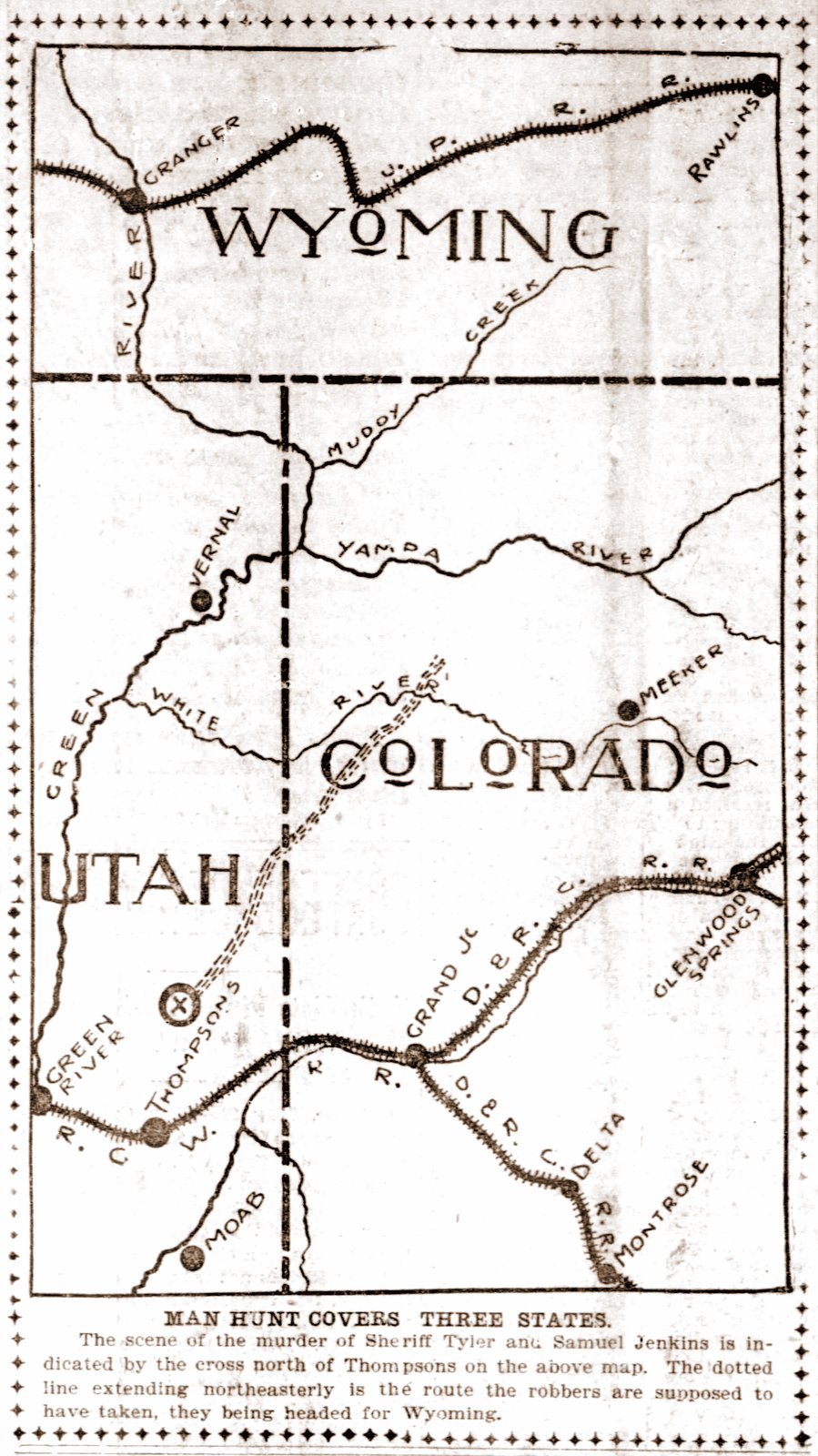
For several years — in fact, ever since the livestock commission drove the Wyoming rustlers out of business in 1892 — “Butch” has proven a thorn in the flesh of the authorities of the four states in which he carries on his operations. He has laughed the militia to scorn.
Sheriffs and deputies he regards with pity and contempt. He is a power unto himself. After the ordinary methods of hunting outlaws had been tried unsuccessfully it was decided that drastic means must be employed.
Rewards have been repeatedly offered for Butch Cassidy, dead or alive, and after each fresh outbreak these rewards have been invariably increased.
If all the offers which have been made from time to time hold good, the slayer of Butch, would be entitled to upward of $20,000 in blood money. But the rewards have proven as futile as have the efforts of the militia and the deputy sheriffs.
And that is why Gov. Wells of Utah, Gov. Adams of Colorado, Gov. Richards of Wyoming and Gov. Steunenberg of Idaho got their heads together to see what could be done. Just what the result of their conference was has not been divulged.

Cassidy a bad man: Leader of a famous band of rustlers
“Butch” and his bands are the outgrowth of the rustlers of six years ago. Since then they have broadened their field and increased their numbers. It is no idle boast to say that the leader of these notorious bands has 500 men at his beck and call.
Their depredations are upon a scale never before reached in the history of frontier crime. All the conditions are favorable to them. They know every foot of the vast territory in which they operate, taking in, as it does, the wildest and most inaccessible portions of four states. Every man of them is thoroughly familiar with frontier life in its rougher phases.
The forces are subdivided into five bands, each controlled by its own leader, with Cassidy as the supreme power. The outlaws now practically control the sparsely settled region extending from central Wyoming southwesterly through northwestern Colorado and Utah, and almost to the Arizona line.

Marauding and murderous bands conduct their raids without restraint. The theft of livestock runs into the millions. Ranchmen are murdered and driven out of business, and the officers of the law are powerless. The outlaws roam the adjacent country and smaller settlements without molestation.
Many settlers purchase immunity by extending assistance in various ways, and the robbers even attend country dances and other functions, occasionally “shooting up” the town or indulging in other forms of recreation. It is only when closely pursued by officers of the law that they retire to their mountain retreats.
“Butch” Cassidy, however, by reason of the price upon his head, considers the higher altitude more conducive to his health and seldom ventures into the towns, unless he is making a raid or is surrounded by a band of his trusty men, in which case he never fears molestation.
Robert Leroy Parker possessed of a fearful temper
Few men who know him would care to rouse his ire, for, although a man of wonderful nerve, unlike most men of his class, he is possessed of a fearful temper. Sometimes it gets beyond control, and then he throws all caution to the wind and becomes utterly reckless.
About four years ago, he was shot at from ambush near Green River by a cowboy known as “Hackey” Hughes, whose only object was to secure the reward offered by the state authorities of Utah. The bullet pierced the lobe of his ear, and the blood streaming down his face acted upon Cassidy as a red flag might to a maddened bull.
“Butch” waited for twenty minutes, and then the cowboy shot the outlaw’s horse, which had been grazing in the open. That was more than Butch could stand. Throwing caution to the winds, he ran toward the clump of bushes, with a pistol in each hand, barking at each step.
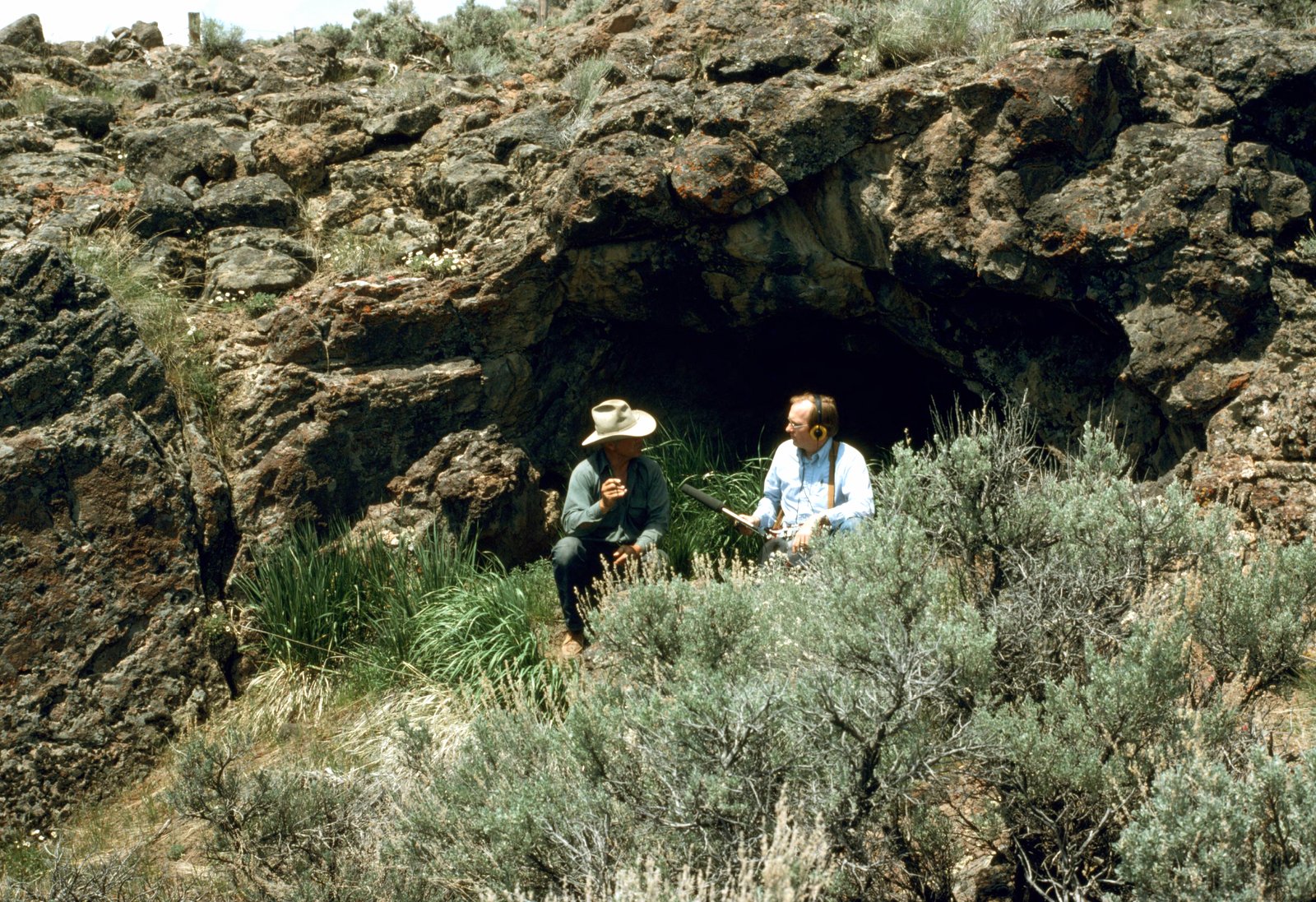
But Hughes considering discretion the better part of valor, had jumped on his horse and succeeded in making good his escape. But the vindictive nature of “Butch” Cassidy asserted itself.
He had recognized his assailant, and every member of the band received instructions to be on the watch for him. Hughes left the Green river country and it was not until six months later that he was located, on the north fork of the Powder river, up in Wyoming.
Cassidy was notified and with a dozen picked men he reached the ranch where Hughes was working. It was during the spring round-up. The two men met face to face. Hughes knew what was coming, and pulled his pin. But he wasn’t quick enough. Cassidy’s pistol cracked first, and the cowboy dropped from his saddle with a bullet through his right eye.
“That’s the way I serve any d—-d skunk that tries to shoot me in the back,” remarked Cassidy. “If any of his friends want to take up the quarrel I’m ready.”
But If the dead cowboy had any friends they failed to respond. Butch Cassidy was well known, and it wasn’t safe to pick quarrels with him. So he rode away with his escort, cursing the cowboys for a pack of cowardly coyotes.
Cattle stealing their main source of income
Cattle stealing is the chief source of income to Cassidy and his followers. One company alone in central Utah has lost 2,000 head during the past two years, worth, at the present prices, $80,000. These were driven through Colorado and into New Mexico.
It is in driving these stolen cattle from one state to another and out of the country that their system of cooperation is beneficial.

However, any operation that promises adventure and financial reward is never overlooked. Trains are held up, express companies and banks are robbed, and even individuals when known to have money in their possession, are relieved of their possessions in true road agent style.
Bank robberies are but side issues with them — merely incidental to their grand, chief occupation of cattle stealing. If a victim resists or an officer pursues, murder is regarded as a professional duty, to be cheerfully performed, but they are not given to wanton slaughter.
“Gimme your guns”
In several instances, foolhardy officers who have invaded their stronghold have been disarmed, dismounted and sent home. An instance of this kind occurred just after the raid on the coal company at Price. Two deputies traced Cassidy and Ferguson to the lair at Robbers’ Roost.
They were fully twenty-four hours behind, and their approach was known long before they arrived at the narrow trail leading up into the rendezvous. Cassidy was in a jovial mood, and he conceived that it would be more fun to capture the deputies and make sport of them than to kill them. So he acted accordingly.
The deputies were about halfway up the trail when, just at a bend around a sharp point of rocks, they heard the sharp command of “Hands up!”
A half dozen guns were staring them in the face not twenty paces away. The deputies realized that not to obey meant sudden death. Up went their hands. Cassidy stepped up to them, roaring with laughter.
“You’re a couple of fine dubs to come and catch peaceable citizens, ain’t you?” he cried, “Gimme your guns.”
The outcome of it was that the deputies, relieved of everything but their clothing, were bound hand and foot to their horses, conducted to the foot of the pass, and sent about their business. To add to their discomfiture, a rudely scrawled note was pinned on the breast of each, which read:
“We are Deputy Sheriffs, Sent Out to Capture Butch Cassidy and His Gang. When Found Send Us Home.”

Butch Cassidy and the Sundance Kid: 1969 movie trailer

Butch Cassidy’s sister shoots down legend (1970)
Author John Newman of Northern Wyoming Daily News, Worland, says, “A little old lady with a twinkle in her eyes has shot down the legend that was Butch Cassidy and she’s put another in its place.
“A friend of mine, Brian Hitchen, who’s an American-based reporter for London’s Daily Mirror, tells me he rode with this little old lady on the trail of the legend… through purple sagebrush and across the red sands of San Rafael desert to Robbers’ Roost, 65 miles south of Green River, Utah.
This was a fortress of Butch Cassidy’s gang, and it was here he and the Sundance Kid returned after their alleged deaths in far away Bolivia. Their ‘deaths’ climaxed the film, ‘Butch Cassidy and the Sundance Kid.'” But what really happened? Here’s the off-screen story.”
By John Newman – The Billings Gazette (Montana) November 8, 1970
Worland, Wyo. — Every film fan knows Butch Cassidy and the Sundance Kid were killed by rifle fire from 100 soldiers in Bolivia.
Or were they?
No, says 86-year-old Mrs. Lula Parker-Betenson. They died with their boots off, in bed, right here in the United States.
So who is Mrs. Lula Parker-Betenson to give the lie to a “Western legend? She is Butch Cassidy’s sister, and for 45 years she has kept silent about the gunman’s fate.
She revealed her story to London’s Daily Mirror Brian Hitchen recently, and in many ways the real Butch Cassidy is a more fascinating character than Hollywood’s.

Butch was a sort of six-gun Robin Hood who robbed the rich to pay the poor and never killed a man, though he was one of the fastest and most accurate guns in the West.
Only one sheriff ever tried to find Robber’s Roost, hideout of the gang known as the Wild Bunch. But the outlaws found the sheriff first. They took his horse, stripped him of his boots and trousers and pointed him in the direction of the nearest town.
From a thousand vantage points it was possible to pick off unwanted visitors approaching Robbers’ Roost. To Butch Cassidy it would have been child’s play. He didn’t shoot, and the lawman went home footsore but alive.
From stories such as this the legend of Butch Cassidy grew and the cowhands and the miners took him to their hearts.
Butch Cassidy was born Robert Leroy Parker in the hamlet of Beaver, Utah, in 1866.
His father originally came to the United States from Accrington, Lancashire, England, and had crossed the sprawling plains pulling a handcart on one of the great Mormon treks west.
Butch was the oldest of 13 children. Lula was the youngest. They lived in a log cabin in the tiny town of Circleville, Utah, where Lula still resides.
She said: “I was only six months old when Butch rode away. He was 18.”
That was 86 years ago. The free ranges of Utah, Colorado and Wyoming were teeming with stray cattle, which farmers were rounding up and stamping with their own brands. It was only a small step from that to straightforward rustling. And young Robert Leroy Parker was quick to learn.
He left home to work in the mines of Colorado and fell in with an outlaw named Mike Cassidy. When Mike had to leave the area in a hurry with the law hot on his heels, young Parker adopted his second name and called himself George Cassidy. Nobody knew where he got George from.
The law caught up with the new Cassidy only once during his entire rampage through the West. In 1894, he was caught stealing horses in Wyoming and jailed in Laramie for two years. He gave his age as 27.
He became Butch Cassidy some years later while working at a butcher’s shop in Rock Springs, Wyo.
Said Mrs. Parker-Betenson: ”My brother was never afraid of honest labor. Between bank hold-ups and robbing trains, he worked at a multitude of jobs from ranch foreman to miner. Every rancher who employed him said he was the best top hand they ever had.”‘
All the people liked him, even the law officers. He only robbed banks, railroads and mines, and they weren’t popular with the people anyway. He never robbed ordinary people. In fact, he gave a lot of his loot away.
“Anyone on hard times could go to him for help. If he didn’t have the cash, he’d go out and get it from folks he reckoned had too much anyway.
”He used to buy supplies and ammunition from a widow who had a store and little farm in Hanksville, Utah, on the Dirty Devil River.
“The widow invited him to stay for supper one evening, and while they ate, she told him a man was coming that night to foreclose on her farm because she couldn’t raise the mortgage money.
“Butch asked how much was needed. He pulled a roll of bills out of his pocket and gave them to the woman, telling her to hand it over to the man.
“Butch left, and later that night the mortgage holder came and collected his money and rode away into the darkness.
“He had only gone a mile when he was held up and robbed… but the mortgage was already marked ‘paid.’ I wonder who that robber was,” winked Mrs. Parker-Betenson.
Butch often escaped capture because lawmen had a soft spot for his generous ways.
“One Christmas, he almost froze to death in a blizzard in the Big Horn Mountains west of the notorious Hole in the Wall. He was rescued by a poor rancher who took him home.
“When Butch recovered he rode into Kaycee, Wyo. and bought clothes and food and toys for the rancher’s kids.
”But when he returned to the ranch, a sheriff and two deputies were waiting for him. They saw his arms full of toys for the children and were so impressed that the sheriff told him, ‘If you see Cassidy, tell him we’re looking for him.’ Then they rode away.”
Sundance Kid’s real name was Harry Longabaugh. He was nicknamed Sundance after serving an 18-month jail sentence in Sundance. Wyo., for horse stealing.
Butch and his gang got away with $32,000 from a Nevada bank in 1900 and headed for Texas.
In the border town of San Antonio, they bought “dude” clothes, went to a photographer’s studio and posed for a formal group picture. They sent one print to the owner of the bank they had robbed.

The picture was picked up by a Pinkerton detective and the gang had to split up. Butch, Sundance and Etta Place, a schoolteacher from Denver, decided to go to South America.
“Etta had a real liking for Butch, even though she was Sundance’s girlfriend,” said Mrs. Parker-Betenson.
“They went to South America to retire, really. They bought cattle and started ranching. But the law came after them and the bank robberies began all over again,” she said.
In 1909, seven years after Butch and Sundance left the U.S., the Bolivian Army triumphantly announced that soldiers had killed the pair after they had robbed a silver mine.
- Hardcover Book
- Herda, D. J. (Author)
- English (Publication Language)
The grieving family heard the news and thought it was the end of Butch. But 16 years later, a Model T Ford arrived at the family ranch.
“A stocky man in city clothes got out,’ said Mrs. Parker-Betenson. ”When he smiled, we knew Butch was back.”‘
He told them the two killed by the Bolivian Army were a pair of greenhorns. At the time of the incident, Butch was in an Indian hut miles away recovering from a scorpion sting. Sundance was away on business.
“Butch told us that for the first time in his life he felt a free man. The law thought he was dead, and he was happy to leave it that way. He told us not to tell anyone that he was still alive and we never did.
“He said that Sundance and Etta were also back in the United States. Then one day, Butch told us he was restless and had to ride on. He wrote to us from time to time but I never saw him again.”
Butch Cassidy spent the rest of his life as a trapper and prospector in Alaska, Wyoming and Washington State. He died in Spokane, Wash., in 1937.
He had spent three days with Sundance Kid that spring. Then they separated forever.
Sundance died in 1957 and is buried in Casper, Wyo., under the name of Harry Long.
And where is Butch Cassidy buried? Well, Mrs. Parker-Betenson is giving that fact to the world some time in the future. She is writing a book about him.

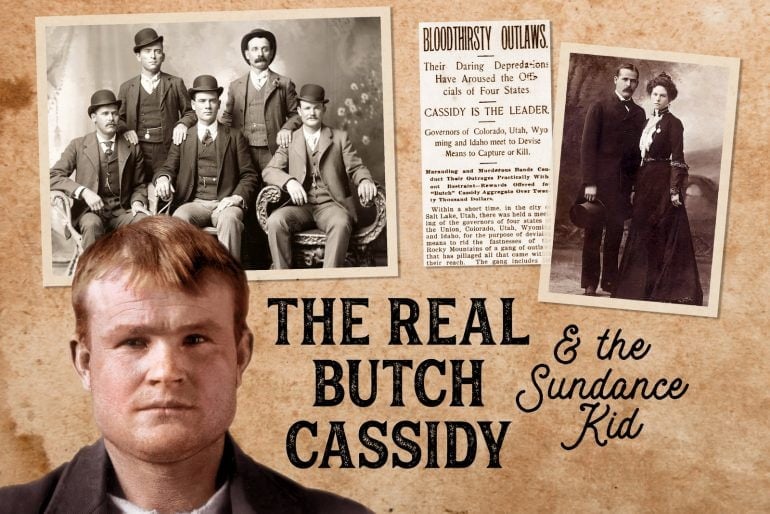



















One Response
My great grandfather Mike rode with Cassidy & shared several stories of their escapades together. In fact, my great grandfather had letters from Cassidy that were passed down to my Uncle Gene. In the 60’s, my Uncle loaned those letters to a journalist. However, the journalist stole those letters as he never returned them. If anyone knows who has our letters, please contact me. Thank you